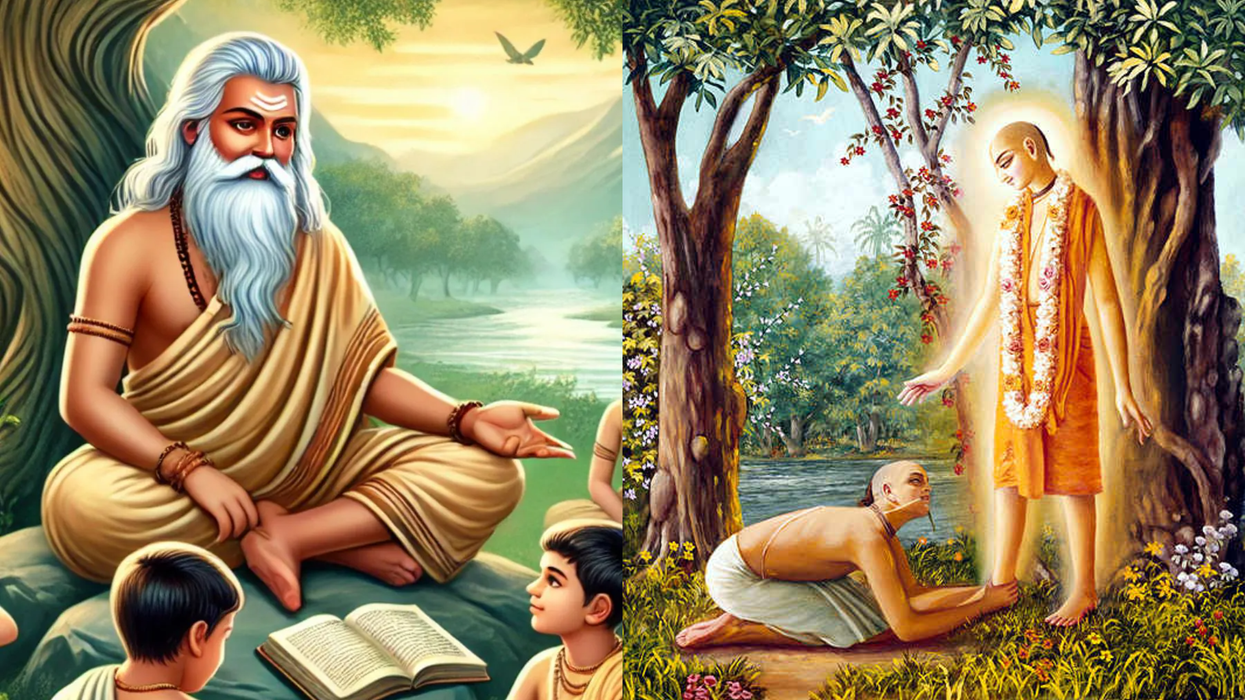ACCLAIMED WRITERS RECALL SPECIAL LITERARY WORKS THAT IMPACTED THEM IN A BIG WAY
by MITA MISTRY
LOCKDOWN has led to a surge in reading and a lot of great authors have been meeting the demand with a wide variety of interesting books.
Most of these talented writers are themselves connected to a special book that made a big impact on them and played a part in their creative journey.
With that in mind, Eastern Eye caught up with acclaimed authors to find out which book inspired them and in the process got great recommendations to add to any reading list.
Imran Mahmood: A book that changed my life, if I had to choose just one, is To Kill A Mockingbird. This was the book I had always been searching for at some level. It deals with the dark and difficult subject of racism in America, but seen and interpreted through the lens of a small child, Scout Finch, who narrates the story in a beautifully pure way. She distils the complex social questions in a way that an adult might find difficult. She feels the devastating impact of the false accusations (of a black man of the rape of a white woman) in a way that cuts unapologetically through the standing mores of the time. She stands up and shouts that wrong is wrong and it is rather than the ‘call to arms’, ‘the cry to shame’ for everybody who can hear it. It’s a book that operates on many levels. It can be seen as a simple fable or a more complex social commentary. But it is at the same time a story about family, love, adventure and bravery. It has everything that you could want in a book. It is my most treasured book and I recommend it to everybody I can.
Kia Abdullah: Trevor Noah’s book Born A Crime. Trevor Noah was “born a crime” because his black Xhosa mother and white Swiss father were not allowed to mix under the laws of apartheid. In this inspiring memoir, Noah charts his journey from the townships of South Africa to one of the most high-profile jobs in America, as the host of The Daily Show. Through personal stories told with humour, Noah does more to expose the toxic legacy of apartheid than any recent history book. If this all sounds rather serious and cerebral, I promise you it’s not. You will laugh, you will cry and will fall utterly in love with Noah and his mother.
Vikas Shah, MBE:Mans’ Search for Meaning by Viktor E Frankl. Neurologist and psychiatrist Viktor E Frankl survived the holocaust. In this truly extraordinary book, Frankl narrates his life at Auschwitz concentration camp, and viscerally puts forward how we can find purpose, meaning and hope in any situation, as illustrated by what he endured, saw and survived. It comes as no surprise that he is the founder of ‘logotherapy,’ which is a form of existential psychology that teaches us that life has meaning in all circumstances; that our motivation to live is to find meaning, and that we have the freedom to find meaning in what we do and experience. For all of us, this book matters, especially now.
Saima Khan: I read The Godfather over 20 years ago and it never left me. Coming from a large family with lots of cousins, being South Asian, and being a family of faith, the aspects of loyalty, religiosity, and how conflicted blood can make all these things, really stayed with me. I found the idea of what we inherit from our parents fascinating, in terms of personality, and how it shapes our future. The Godfather reminded me of the ‘angry young man’ (Amitabh) Bachchan movies that were popular in the 1970s. It stayed with me, and ultimately, inspired me to write The Khan.
Jeevani Charika: I’m going to choose The Wee Free Men by Terry Pratchett, mainly because of this (paraphrased) quote: ‘If you trust in yourself, and believe in your dreams, and follow your star, you'll still get beaten by people who spent their time working hard and learning things and weren’t so lazy.’ I’d always had the sneaking suspicion that a dream without a plan wasn’t as much use as Disney movies would have you believe. Seeing that thought articulated so well, in print, made me realise how true it was. So, I have tried to plan better and work harder ever since.
Alex Khan: Reading A Suitable Boy had a huge impact on my life. I think until I came across this novel I hadn’t experienced the whole gamut of human emotions and relationships told through the frame of characters that were brown. Apart from Starry Nights by Shobha De, Vikram Seth’s novel showed me that Asian characters could love, betray, strive, lose and, ultimately, find purpose and meaning, within some of the most evocative prose. It is my Desert Island Discs book for sure; there is enough to keep you going through multiple reads, each one bringing different parts of the story to importance as you age.
Preti Taneja: Claudia Rankine is a Black American lyric poet and New York Times Bestselling author. Her new book Just Us: An American Conversation has recently been published. But it’s her book CITIZEN: An American Lyric which changed me when I read it in 2017. There is such a precise fire in it. No other contemporary work has crystalised so completely for me what power language and poetry have to speak back to white supremacy and against anti-black racism. I carried Citizen with me on my book tour across America in 2018, and it provided me with a map to navigate by. Reading it back home in the UK revealed how far our cultural conversation, and society as a whole, still has to go in tackling these issues. This year the Covid-19 pandemic has exposed forever the deep racism underpinning social inequality in our society. Citizen is a book that speaks across time and geography – it showed me what writers from minority backgrounds might do with the compression of lyric poetry and how we can, and should fuse ethics, politics and aesthetics in our work.
Cauvery Madhavan: Amitav Ghosh’s first book in his Ibis Trilogy, Sea Of Poppies was a game changer for me as a reader and more importantly as a writer. It opened up a whole new world of possibilities that good, well researched fiction presents, which is a chance to really absorb history without resorting to lessons by rote. Sea Of Poppies reveals the cruel truths of the origins of the Indian diaspora – why people from the Indian subcontinent are scattered all over the world, from no fault of their own. We were never taught this in school and reading it made me so angry, but so proud. We are such a resilient people.





 There’s deep healing in the communityiStock
There’s deep healing in the communityiStock










 From ancient sages to modern-day Gurus, their influence on society continues to inspire and transformiStock/Mahabharata
From ancient sages to modern-day Gurus, their influence on society continues to inspire and transformiStock/Mahabharata The relationship between Guru and disciple has been central to the evolution of Hindu philosophy and practiceiStock/Mahabharata
The relationship between Guru and disciple has been central to the evolution of Hindu philosophy and practiceiStock/Mahabharata The reverence for spiritual leaders remains a cornerstone of Hindu culture, transcending time and traditioniStock/Mahabharata
The reverence for spiritual leaders remains a cornerstone of Hindu culture, transcending time and traditioniStock/Mahabharata


